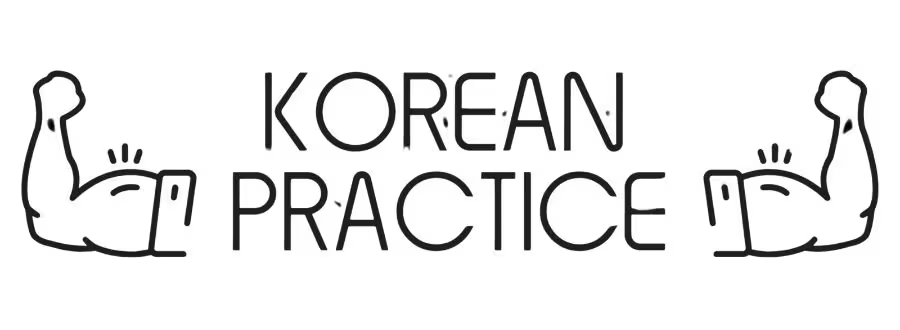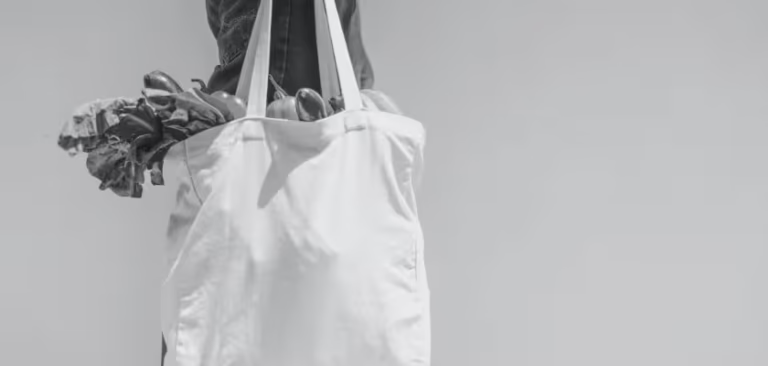Introduction: Why Learn Korean Phrases for Travel?
South Korea is a fascinating country with a rich history, vibrant culture, and bustling cities. But like any foreign country, navigating the language barrier can be a challenge for travelers.
Learning a few basic Korean phrases for travel can not only help you communicate with locals but also show respect for their language and culture. In addition, using Korean phrases for travel can make your trip more enjoyable and authentic by allowing you to interact with locals and experience the country on a deeper level.
Getting Around
Asking for Directions
If you’re lost or need directions during your travels in South Korea, having a few key Korean phrases for travel at your disposal can be incredibly helpful. With these essential Korean phrases for travel, you’ll be able to effectively communicate with locals and navigate unfamiliar surroundings with ease.
Here are some useful Korean phrases for travel to assist you when seeking directions or guidance from the locals:
어디에요?
어디에요?
어디에요 (eo-di-e-yo)?
어디 (where) 에요 (is; I’m asking you polite and friendly)?
Where is it?
Lit. Where is (it)?
지하철역이 어디에 있어요?
지하철역이 어디에 있어요?
지하철역이 (ji-ha-cheol-yeo-gi) 어디에 (eo-di-e) 있어요 (it-sseo-yo)?
지하철 (subway) 역 (station) 이 (my subject is the subway station) 어디 (where) 에 (at) 있 (to be) 어요 (I’m asking you polite and friendly)?
Where is the subway station?
Lit. At where is subway station?
이 근처에 은행이 어디에 있나요?
이 근처에 은행이 어디에 있나요?
이 (i) 근처에 (geun-cheo-e) 은행이 (eun-haeng-i) 어디에 (eo-di-e) 있나요 (in-na-yo)?
이 (this) 근처 (vicinity) 에 (in) 은행 (bank) 이 (my subject is the bank) 어디 (where) 에 (at) 있 (to be) 나 (I wonder) 아요 (I’m asking you polite and friendly)? * 있나 + 아요 = 있나요
Where is the bank around here?
Lit. At where is bank in this vicinity?
쇼핑몰은 어디에 있어요?
쇼핑몰은 어디에 있어요?
쇼핑몰은 (syo-ping-mo-reun) 어디에 (eo-di-e) 있어요 (it-sseo-yo)?
쇼핑몰 (shopping mall) 은 (my topic is the shopping mall) 어디 (where) 에 (at) 있 (to be) 어요 (I’m asking you polite and friendly)?
Where is the shopping mall?
Lit. At where is shopping mall?

Taking Public Transportation
South Korea, known for its efficient and expansive public transportation system, offers various modes of travel, including buses, subways, and trains. When exploring the country, having a repertoire of key Korean phrases for travel is essential for smooth navigation:
버스를 타고 싶어요.
버스를 타고 싶어요.
버스를 (beo-seu-reul) 타고 (ta-go) 싶어요 (si-peo-yo).
버스 (bus) 를 (my object is the bus) 타 (to take) 고 싶 (want to) 어요 (I’m telling you polite and friendly).
I want to take the bus.
Lit. (I) want to take bus.
지하철을 타고 싶어요.
지하철을 타고 싶어요.
지하철을 (ji-ha-cheo-reul) 타고 (ta-go) 싶어요 (si-peo-yo).
지하철 (subway) 을 (my object is the subway) 타 (to take) 고 싶 (want to) 어요 (I’m telling you polite and friendly).
I want to take the subway.
Lit. (I) want to take subway.
몇 번 버스를 타야 해요?
몇 번 버스를 타야 해요?
몇 (myeot) 번 (bbeon) 버스를 (beo-seu-reul) 타야 (ta-ya) 해요 (hae-yo)?
몇 번 (what number) 버스 (bus) 를 (my object is bus) 타 (to take) 아야 하 (should) 해요 (I’m asking you polite and friendly)? 타 + 아야 = 타야, 하 -> 해
Which bus should I take?
Lit. Whiat number bus should (I) take?
이 버스는 어디로 가요?
이 버스는 어디로 가요?
이 (i) 버스는 (beo-seu-neun) 어디로 (eo-di-ro) 가요 (ga-yo)?
이 (this) 버스 (bus) 는 (my topic is this bus) 어디 (where) 로 (to) 가 (to go) 아요 (I’m asking you polite and friendly)?
Where does this bus go?
Lit. To where does this bus go?
지하철역까지 어떻게 가나요?
지하철역까지 어떻게 가나요?
지하철역까지 (ji-ha-cheol-yeok-gga-ji) 어떻게 (eo-ddeo-ke) 가나요 (ga-na-yo)?
지하철 (subway) 역 (station) 까지 (to) 어떻게 (how) 가 (to ) 나 (I wonder) 아요 (I’m asking you polite and friendly)? * 나 + 아요 = 나요
How do I get to the subway station?
Lit. How (do I) go to subway station?
지하철 요금은 얼마예요?
지하철 요금은 얼마예요?
지하철 (ji-ha-cheol) 요금은 (yo-geu-meun) 얼마예요 (eol-ma-ye-yo)?
지하철 (subway) 요금 (fare) 은 (my topic is the subway fare) 얼마 (how much) 예요 (is; I’m asking you polite and friendly)?
How much is the subway fare?
Lit. How much is subway fare?
막차는 몇 시에 있나요?
막차는 몇 시에 있나요?
막차는 (mak-cha-neun) 몇 (myeot) 시에 (si-e) 있나요 (in-na-yo)?
막차 (last bus/train) 는 (my topic is the last bus/train) 몇 (what) 시 (time) 에 (at) 있 (to be) 나 (I wonder) 아요 (I’m asking you polite and friendly)?
What time is the last bus/train?
Lit. At what time is last bus/train?

Image by benzoix on Freepik
Ordering Food and Drinks
Menus and Ordering
South Korea, renowned for its delectable cuisine, offers a plethora of culinary delights that are a must-try for any traveler. When dining out and exploring the vibrant food scene, having a repertoire of key Korean phrases for travel is essential for ordering at restaurants:
메뉴판 좀 주세요.
메뉴판 좀 주세요.
메뉴판 (me-nyu-pan) 좀 (jom) 주세요 (ju-se-yo).
메뉴 (menu) 판 (plate) 좀 (kindly) 주 (to give) 세요 (please).
Can I have a menu, please?
Lit. Please kindly give (me) menu plate.
추천 음식이 있나요?
추천 음식이 있나요?
추천 (chu-cheon) 음식이 (eum-si-gi) 있나요 (in-na-yo)?
추천 (recommendation) 음식 (dish) 이 (my subject is recommended dishes) 있 (to have) 나 (I wonder) 아요 (I’m asking you polite and friendly)?
Do you have any recommended dishes?
Lit. (Do you) have recommendation dish?
이거 주세요.
이거 주세요.
이거 (i-geo) 주세요 (ju-se-yo).
이 (this) 거 (thing) 주 (to give) 세요 (please).
Please give me this.
Lit. Please give (me) this thing.
물 좀 주세요.
물 좀 주세요.
물 (mul) 좀 (jom) 주세요 (ju-se-yo).
물 (water) 좀 (some) 주 (to give) 세요 (please).
Can I have some water, please?
Lit. Please give (me) some water.
이 음식은 매워요?
이 음식은 매워요?
이 (i) 음식은 (eum-si-geun) 매워요 (mae-wo-yo)?
이 (this) 음식 (dish) 은 (my topic is this dish) 맵 (to be spicy) 어요 (is; I’m asking you polite and friendly)?
Is this dish spicy?
어떤 양념을 사용했나요?
어떤 양념을 사용했나요?
어떤 (eo-ddeon) 양념을 (yang-nyeo-meul) 사용했나요 (sa-yong-haet-na-yo)?
어떤 (what kind of) 양념 (seasoning) 을 (my object is seasoning) 사용 하 (to use) 했 (past tense) 나 (I wonder) 아요 (I’m asking you polite and friendly)? 하 -> 해, 나 + 아요 = 나요
What kind of seasoning did you use?
Lit. What kind of seasoning did (you) use?
Food Allergies and Dietary Restrictions
If you have any food allergies or dietary restrictions during your travels in South Korea, effectively communicating this information to your server is crucial. Equipping yourself with key Korean phrases for travel will assist you in navigating these conversations with ease:
저는 알러지가 있어요.
저는 알러지가 있어요.
저는 (jeo-neun) 알러지가 (al-ler-ji-ga) 있어요 (it-sseo-yo).
저 (I; in a humble way) 는 (as for me) 알러지 (allergy) 가 (my subject is allergies) 있 (to exist) 어요 (I’m telling you polite and friendly).
I have allergies.
Lit. As for me, allergy exist.
저는 채식주의자입니다.
저는 채식주의자입니다.
저는 (jeo-neun) 채식주의자입니다 (chae-sik-ju-ui-ja-im-ni-da).
저 (I) 는 (my topic is myself) 채식주의자 (vegetarian) 입니다 (am; I’m telling you in a polite and formal way).
I am a vegetarian.
Lit. I am vegetarian.
저는 다이어트 중입니다.
저는 다이어트 중입니다.
저는 (jeo-neun) 다이어트 (da-i-eo-teu) 중입니다 (jung-im-ni-da).
저 (I; in a humble way) 는 (my topic is myself) 다이어트 (diet) 중 (in the middle of) 입니다 (am; I’m telling you in a polite and formal way).
I am on a diet.
Lit. I am in the middle of diet.
저는 알러지가 있어서 특정 식재료를 피하고 싶어요.
저는 알러지가 있어서 특정 식재료를 피하고 싶어요.
저는 (jeo-neun) 알러지가 (al-ler-ji-ga) 있어서 (it-sseo-seo) 특정 (teuk-jjeong) 식재료를 (sik-jae-ryo-reul) 피하고 (pi-ha-go) 싶어요 (si-peo-yo).
저 (I) 는 (my topic is myself) 알러지 (allergies) 가 (my subject is allergy) 있 (to have) 어서 (because) 특정 (certain) 식재료 (ingredient) 를 (my object is certain ingredients) 피하 (to avoid) 고 싶 (would like to) 어요 (I’m telling you polite and friendly).
I have allergies and would like to avoid certain ingredients.
Lit. Because I have allergy, (I) would like to avoid certain ingredient.
Paying the Bill
When you’re ready to settle the bill after your meal in South Korea, having a grasp of key Korean phrases for travel will be invaluable. These phrases will assist you in smoothly completing the payment process:
계산할게요.
계산할게요.
계산할게요 (gye-san-hal-gge-yo).
계산하 (to calculate) ㄹ게 (I will) 요 (I’m telling you polite and friendly). * 계산하 + ㄹ게 = 계산할게
I’ll pay the bill.
Lit. I’ll calculate.
신용 카드로 계산할 수 있나요?
신용 카드로 계산할 수 있나요?
신용 (sin-yong) 카드로 (ka-deu-ro) 계산할 (gye-san-hal) 수 (su) 있나요 (in-na-yo)?
신용 (credit) 카드 (card) 로 (with) 계산하 (to calculate) ㄹ 수 있 (can) 나 (I wonder) 아요 (I’m asking you polite and friendly)? 계산하 + ㄹ = 계산할, 나 + 아요 = 나요
Can I pay by credit card?
Lit. Can (I) calculate with credit card?
현금으로 계산할게요.
현금으로 계산할게요.
현금으로 (hyeon-geu-meu-ro) 계산할게요 (gye-san-hal-gge-yo).
현금 (cash) 으로 (with) 계산하 (to calculate) ㄹ게 (I will) 요 (I’m telling you polite and friendly). 계산하 + ㄹ게 = 계산할게
I’ll pay with cash.
Lit. I’ll pay with cash.
이 카드로 계산할 수 있나요?
이 카드로 계산할 수 있나요?
이 (i) 카드로 (ka-deu-ro) 계산할 (gye-san-hal) 수 (su) 있나요 (in-na-yo)?
이 (this) 카드 (card) 로 (with) 계산하 (to calculate) ㄹ 수 있 (can) 나 (I wonder) 아요 (I’m asking you polite and friendly)? 계산하 + ㄹ = 계산할, * 나 + 아요 = 나요
Can I pay with this card?
Lit. Can I pay with this card?
영수증을 받을 수 있나요?
영수증을 받을 수 있나요?
영수증을 (yeong-su-jeung-eul) 받을 (ba-deul) 수 (su) 있나요 (in-na-yo)?
영수증 (receipt) 을 (my object is a receipt) 받 (to receive) 을 수 있 (can) 나 (I wonder) 아요 (I’m asking you polite and friendly)? * 나 + 아요 = 나요
Can I have a receipt?
Lit. Can (I) receive receipt?
Shopping and Bargaining
Basic Phrases for Shopping
South Korea, a true shopping haven, offers a plethora of markets, boutiques, and department stores for retail therapy enthusiasts. Equipping yourself with key Korean phrases for travel will greatly enhance your shopping experience:
이거 얼마예요?
이거 얼마예요?
이거 (i-geo) 얼마예요 (eol-ma-ye-yo)?
이 (this) 거 (thing; colloquial style of 것) 얼마 (how much) 예요 (is; I’m asking you polite and friendly)?
How much is this?
Lit. How much is this thing?
이거 좀 싸게 해 주세요.
이거 좀 싸게 해 주세요.
이거 (i-geo) 좀 (jom) 싸게 (ssa-ge) 해 (hae) 주세요 (ju-se-yo).
이 (this) 거 (thing; colloquial style of 것) 좀 (kindly) 싸 (to be cheap) 게 (in a manner which is cheap) 하 (to do) 주세요 (please).
Can you give me a discount on this?
Lit. Please do this thing cheap.
이 색깔이 예뻐요.
이 색깔이 예뻐요.
이 (i) 색깔이 (saek-gga-ri) 예뻐요 (ye-bbeo-yo).
이 (this) 색깔 (color) 이 (m subject is this color) 예쁘 (to be pretty) 어요 (is; I’m telling you polite and friendly). * 예쁘 + 어요 = 예뻐요
This color is pretty.
더 큰 사이즈가 있을까요?
더 큰 사이즈가 있을까요?
더 (deo) 큰 (keun) 사이즈가 (sa-i-jeu-ga) 있을까요 (it-sseul-gga-yo)?
더 (more) 큰 (big) 사이즈 (size) 가 (my subject is a larger size) 있 (to have) 을까 (I wonder) 요 (I’m asking you polite and friendly)?
Do you have a larger size?
Lit. (Do you) have more big size?
이 옷을 입어 볼 수 있을까요?
이 옷을 입어 볼 수 있을까요?
이 (i) 옷을 (o-seul) 입어 (i-beo) 볼 (bol) 수 (su) 있을까요 (it-sseul-gga-yo)?
이 (this) 옷 (clothing) 을 (my object is this clothing) 입 (to wear) 어 보 (try to) ㄹ 수 있 (can) 을까 (I wonder) 요 (I’m asking you polite and friendly)? * 어 보 + ㄹ = 어 볼
Can I try on this clothing?
Lit. Can (I) try to wear this clothing?
이것을 선물로 사고 싶어요.
이것을 선물로 사고 싶어요.
이것을 (i-geo-seul) 선물로 (seon-mul-ro) 사고 (sa-go) 싶어요 (si-peo-yo).
이 (this) 것 (thing) 을 (my object is this) 선물 (gift) 로 (as) 사 (to buy) 고 싶 (want to) 어요 (I’m tellling you polite and friendly).
I want to buy this as a gift.
Lit. (I) want to buy this thing as gift.
이 가게는 몇 시에 문을 닫나요?
이 가게는 몇 시에 문을 닫나요?
이 (i) 가게는 (ga-ge-neun) 몇 (myeot) 시에 (si-e) 문을 (mu-neul) 닫나요 (dan-na-yo)?
이 (this) 가게 (store) 는 (as for this store) 몇 (what) 시 (o’clock) 에 (at) 문 (door) 을 (my object is door) 닫 (to close) 나 (I wonder) 아요 (I’m asking you polite and friendly)? * 나 + 아요 = 나요
What time does this store close?
Lit. As for this store, at what time does it close door?
이 제품은 할인 중인가요?
이 제품은 할인 중인가요?
이 (i) 제품은 (je-pu-meun) 할인 (ha-rin) 중인가요 (jung-in-ga-yo)?
이 (this) 제품 (product) 은 (my topic is this product) 할인 (sale) 중 (in the middle of) 인가 (I wonder) 아요 (is; I’m asking you polite and friendly)? * 인가 + 아요 = 인가요
Is this product on sale?
Lit. Is this product in the middle of sale?
Emergency Situations
Asking for Help
In case of an emergency during your travels in South Korea, being equipped with key Korean phrases for travel can make a significant difference in seeking assistance. These Korean phrases for travel will enable you to effectively communicate your needs and ask for help:
도와 주세요.
도와 주세요.
도와 (do-wa) 주세요 (ju-se-yo).
돕 (to help) 아 주세요 (please). * 돕 + 아 = 도와
Please help me.
Lit. Please help.
경찰을 불러 주세요.
경찰을 불러 주세요.
경찰을 (gyeong-cha-reul) 불러 (bul-leo) 주세요 (ju-se-yo).
경찰 (police) 을 (my object is the police) 부르 (to call) 어 주세요 (please). * 부르 + 어 = 불러
Please call the police.
Lit. Please call police.
응급 상황입니다.
응급 상황입니다.
응급 (eung-geup) 상황입니다 (sang-hwang-im-ni-da).
응급 (emergency) 상황 (situation) 입니다 (is; I’m telling you in a polite and formal way).
It’s an emergency situation.
Lit. (It)’s emergency situation.
구급차를 불러 주세요.
구급차를 불러 주세요.
구급차를 (gu-geup-cha-reul) 불러 (bul-leo) 주세요 (ju-se-yo).
구급차 (ambulance) 를 (my object is an ambulance) 부르 (to call) 어 주세요 (please). * 부르 + 어 = 불러
Please call an ambulance.
Lit. Please call ambulance.
아파요. 의사를 불러 주세요.
아파요. 의사를 불러 주세요.
아파요 (a-pa-yo) . 의사를 (ui-sa-reul) 불러 (bul-leo) 주세요 (ju-se-yo).
아프 (to be hurt) 아요 (am; I’m telling you polite and friendly). 의사 (doctor) 를 (my object is a doctor) 부르 (to call) 어 주세요 (please). 아프 + 아요 = 아파요, 부르 + 어 = 불러
I’m in pain. Please call a doctor.
LIt. (I)’m hurt. Please call doctor.
By incorporating these Korean phrases for travel, you can confidently reach out for assistance and ensure a prompt response in emergency situations. Remember, your safety and well-being are of utmost importance, and these Korean phrases for travel will aid you in seeking the necessary help when needed.
Health Concerns
If you find yourself in need of medical attention during your travels in South Korea, knowing key Korean phrases for travel can greatly assist you in seeking the necessary healthcare services:
병원에 가고 싶어요.
병원에 가고 싶어요.
병원에 (byeong-wo-ne) 가고 (ga-go) 싶어요 (si-peo-yo).
병원 (hospital) 에 (to) 가 (to go) 고 싶 (want to) 어요 (I’m telling you polite and friendly).
I need to go to the hospital.
Lit. (I) want to go to hospital.
약국이 어디에 있나요?
약국이 어디에 있나요?
약국이 (yak-ggu-gi) 어디에 (eo-di-e) 있나요 (in-na-yo)?
약국 (pharmacy) 이 (my subject is the pharmacy) 어디 (where) 에 (at) 있 (to be) 나 (I wonder) 아요 (I’m asking you polite and friendly)? * 나 + 아요 = 나요
Where is the pharmacy?
Lit. At where is pharmacy?
저는 몸이 안 좋아요.
저는 몸이 안 좋아요.
저는 (jeo-neun) 몸이 (mo-mi) 안 (an) 좋아요 (jo-a-yo).
저 (I; in a humble way) 는 (as for me) 몸 (body) 이 (my subject is body) 안 (not) 좋 (to be good) 아요 (am; I’m telling you polite and friendly).
I’m not feeling well.
Lit. As for me, body is not good.
By utilizing these Korean phrases for travel, you can effectively communicate your medical needs, locate the nearest hospital, and ensure appropriate care. Remember to have important medical information and travel insurance details readily available to facilitate the process. Your health and well-being are paramount, and these Korean phrases for travelwill assist you in navigating healthcare services in South Korea.
Conclusion
Learning and utilizing key Korean phrases for travel can be a game-changer for your journey through South Korea. Whether you’re exploring the streets, indulging in local cuisine, or engaging in retail therapy, these essential phrases will enable you to navigate the country effortlessly. Embrace the opportunity to practice your Korean with locals, as it not only allows you to communicate effectively but also immerses you in the rich tapestry of Korean culture.
By incorporating these Korean phrases for travel into your conversations, you can confidently ask for directions, order your favorite dishes, and connect with the locals on a deeper level. So, equip yourself with these phrases, embark on your South Korean adventure, and unlock unforgettable experiences that await you.







